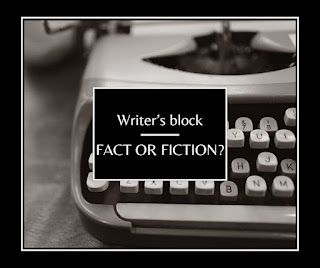Addiction is a powerful force that can cast a shadow over families, perpetuating a cycle that spans generations. Breaking free from the clutches of addiction requires courage, self-reflection, and a commitment to making amends. In this article I’d like to explore the transformative journey of overcoming addiction, making restitution for past wrongs, and forging a path to redemption. It delves into the generational nature of alcoholism and the profound impact it can have on families.
For many, addiction is more than a personal struggle; it’s a family legacy passed down through generations. In my own life, I witnessed the pervasive influence of alcoholism as my father, despite his tremendous success in other aspects of life, battled with alcohol throughout his entire existence. Alcoholism seemed almost “handed down,” an insidious inheritance that shaped our family dynamics and fueled a destructive cycle.
Understanding the impact of addiction on my life required a deep dive into self-awareness. I came to realize that, like my father, I was following a similar path. It was a moment of clarity that sparked a desire for change. The journey to sobriety began with acknowledging and recognizing the need to break free from the destructive patterns that had woven themselves into the fabric of my life.
One of the pivotal steps in overcoming addiction is making amends. This involves not only apologizing to those we have hurt but actively working to repair the damage done. It is a humbling process that requires honesty, vulnerability, and a commitment to change. Making amends is not just about seeking forgiveness from others; it’s about forgiving ourselves and laying the groundwork for a better future.
Writing became a therapeutic outlet on my journey to recovery. Journaling allowed me to confront my demons, express my emotions, and chart my progress. It became a tool for self-reflection, enabling me to gain insight into the roots of my addiction and the impact it had on those around me. The written word became a companion on the path to redemption, helping me navigate the complexities of my past and present. I’ve found that actually writing (pen to paper) rather than using an app or typing was extremely therapeutic. Below is a tool I created called the “Daily Success Planner” that can help anyone, in any walk of life, keep track of their goals.
Navigating the turbulent waters of recovery is challenging, but having a 12-step sponsor can be a guiding light. A sponsor provides support, wisdom, and accountability, offering a lifeline during moments of doubt. Through the 12-step program, I not only found a community that understood the struggles of addiction and embraced the journey toward healing, I found a sponsor who I truly believe helped save my life. I will often send him a text saying “Thank you for saving my life.” He immediately texts me back saying, “Who saved who?” His mentorship as a sponsor and friend proved invaluable in staying on the path to recovery.
As part of my healing process, I co-founded a band called The Ruins. Our music became a vehicle for self-expression and a platform to share the struggles of addiction with others. The album “Scavenger” emerged as a cathartic endeavor, weaving together personal experiences and universal themes of not only redemption, it was a way for me to let go of my anger. Music, as a form of therapy, not only provided an outlet for my emotions but also resonated with listeners on their own paths to sobriety.
https://open.spotify.com/artist/3e2Ht5lYr7SaeSSRlxZImR?si=zT6EoelmQS2hHOzXsgeXeA
Within the musical tapestry of “Scavenger,” the song “Fade Away” emerges as a heartfelt anthem of amends to my wife. This poignant track captures the essence of remorse, vulnerability, and the earnest desire for reconciliation. The lyrics weave a narrative of acknowledging my past, the toll of addiction on our relationship, and the commitment to change. “Fade Away” becomes a melodic confession, a musical dialogue where I express profound remorse for the pain caused and the determination to build a stronger foundation. In crafting this song, I found a unique and deeply personal way to communicate the depth of my love, regret, and genuine intent to make amends — a testament to the transformative power of music in healing fractured relationships. The song not only serves as an apology to my wife but also stands as a symbol of the ongoing journey toward rebuilding trust and fostering a healthier connection.
https://youtu.be/wY63Tq0dQ_4?si=jLr-eCz2FjyLMdBu
https://open.spotify.com/track/29l0iMtP8UkJcXsKqiCaQW?si=fd0b1aa077a44328
The song “Sins of the Father” stands as a poignant exploration of the parallels between my father’s journey and my own. The lyrics delve into the complexities of our similarities, the shared struggles, and the transformative power of breaking free from the chains of addiction. Through the creation of this song, I found a way to confront the past, reconcile with it, and redefine my own narrative.
https://open.spotify.com/track/3BVOoAa7R6xUbtqriVSh6l?si=df8fc39027de476b
Overcoming addiction and making amends is a transformative journey that requires introspection, accountability, and a commitment to change. The generational nature of addiction can cast a long shadow, but with courage and perseverance, it is possible to break free from its grip. Through writing, journaling, having a 12-step sponsor, and creative outlets like music, individuals can embark on a path of redemption and forge a brighter future. As we confront the “Sins Of The Father,” we have the power to shape a new legacy — one of healing, forgiveness, and resilience.
You can read more of my blogs at
You can buy me a cup of coffee at



Comments
Post a Comment